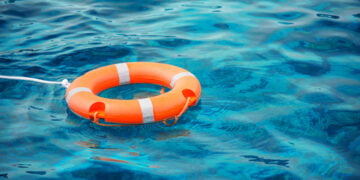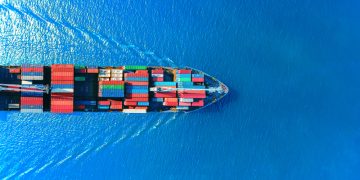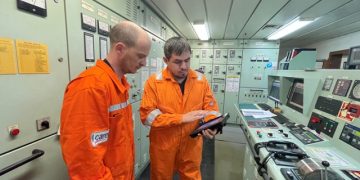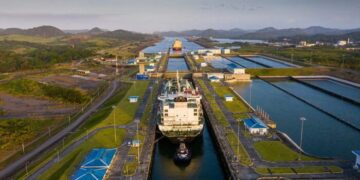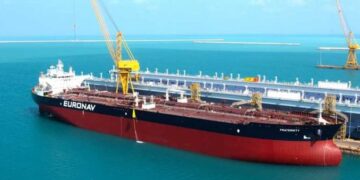IMO released updated guidance Procedures for PSC with IMO Resolution A. 1155(32) which was adopted on 15 December 2021. SQE MARINE explains what’s new in the revised resolution, which replaced previous version [Resolution A.1138 (31) of 2019]
What are the IMO Procedures for PSC?
IMO procedures for PSC provide a detailed guidance to Port State Authorities, featuring the following :
1. Chapter 1 – General
Includes provisions for PSC general information, Ships of non-Parties, Ships below convention size, Definitions, Professional profile of PSCOs, Qualification and training requirements of PSCOs
2. Chapter 2 – Port State Inspections
Includes general procedural guidelines for PSCOs, Initial inspections, Clear grounds, More detailed inspections
3. Chapter 3 – Contravention and Detention
Includes Identification of a substandard ship, Submission of information concerning deficiencies, Port State action in response to alleged substandard ships, Responsibilities of port State to take remedial action, Guidance for the detention of ships, Suspension of inspection, Procedures for rectification of deficiencies and release
4. Chapter 4 – Reporting Requirements
Includes Port State reporting, Flag State reporting, Reporting of allegations under MARPOL
5. Chapter 5 – Review Procedures
Includes the reporting of comments
There is also a list of 19 Appendices with additional and more detailed guidance for PSCOS, Good Practices and convention specific compliance requirements.
What’s new in revised resolution with Procedures for PSC (2021)?
The main chapters (1 to 5) of the procedures remain without changes. Some changes have been incorporated in Appendices as follows:
Appendix 4 Guidelines for Investigations & Inspections carried out under ARPOL Annex II
Part 1 para. 1.6.4 reference updated to include Harmonized System of Survey and Certification 2021.
Part 4. New para. 5.10 incorporated with provisions for electronic record book (ERB) use and the provision of a stand alone form or a copy of surveyor’s report to accompany the electronic record book entry. An example form of Cargo Record Book Endorsement is included.
Appendix 7 Guidelines for Control of Operational requirements
This Appendix was totally reformed and categorized in two Parts:
Part 1.: Initial Process
Part 2.: Guidance on Specific Inspection Activities
Part 1.
Para. 1. New Para 1.6 Definitions & Abbreviations was incorporated to include definition of Operational Control and Functional test as below:
- Operational control: A control inspection to confirm the master and crew are familiar with essential shipboard procedures with respect to the safety of the ship and crew and protection of the environment and are able to apply such procedures. It includes a check on the effectiveness of communication and interaction and familiarity of the crew, including the human interface.
- Functional test: A test of an item to prove the correct operation and function of equipment. Functional tests may be carried out during an initial or more detailed inspection.
Para. 3
In previous version, the PSCO was not required to intimidate/interfere during drill nor offer advise but just to observe. However, in the updated PSC Procedures, a major change is that PSCO should devise the scenario (in cooperation with the Master) and control it, since there is an element of uncertainty on the part of the ship’s officers as to how a drill will progress and is more realistic to the actual onboard situation facing crew members in a critical situation.
Additionally for all actions involving operational activity, briefing/meeting/debriefing is to be held.
Detailed instructions for witnessing and assessing drills are provided in Para. 7
Para. 4
Additional requirements highlight difficulties to communicate with non English speaking crew. Additional new guidance has been incorporated for passenger ships safety center.
Para. 5 (new) – Assessing the ship with respect to operational requirements
A list of findings that may lead to detention has been included.
A key highlight of the updated guidance is the inclusion of the following paragraph:
In relating the deficiency, it is critical to note that having the necessary equipment installed and operational does not provide a capability as required by Convention unless the master and crew are familiar with the operation of the equipment and associated procedures as required by STCW Section A-I/4.4.
Para. 8 (new) – Detention under Operational Requirements
Procedures identify a substandard ship as being one where operational safety is substantially below the standards required by the relevant convention and specifically, in the case of operational requirements, where there is: “insufficiency of operational proficiency, or unfamiliarity of essential operational procedures by the crew”. A list of operational procedures related to conventions is provided and includes:
- SOLAS regulation XI-1/4;
- MARPOL Annex I, regulation 11;
- MARPOL Annex II, regulation 16.9;
- MARPOL Annex III, regulation 9;
- MARPOL Annex IV, regulation 14;
- MARPOL Annex V, regulation 9;
- MARPOL Annex VI, regulation 10; and
- STCW, Article X and regulation I/4 and section A-I/4.
Part 2
Para. 1
Provides detailed guidance on specific inspection activities as per para. 1.1 to 1.10 (previous version Appendix 7 para. 13-22). No changes have been included.
Para.2
Muster list requirements remained same with previous version with the addition of checking the familiarity of crew with their duties included in muster list.
Additional communication requirements during drills have been included with key personnel. A list of what is considered to be key personnel (but not limited to it) is provided:
For drills, key crew members could be but are not limited to:
- bridge team including GMDSS operators who must also be able to communicate with the shore and other vessels;
- fire parties;
- damage control parties;
- boat preparation parties; or
- passenger muster personnel on passenger ships.
Appendix 18 – Renamed to read: Guidelines For Port State Control Under MARPOL Annex VI
Para.2.1.2 revised to include 3 additional items:
Item 2. International Energy Efficiency Certificate (IEE Certificate) (regulation VI/6) including its Supplement
Item 18. Ship Energy Efficiency Management Plan (SEEMP) including, where applicable, the methodology that will be used to collect the data required by regulation 22A of the Annex and the associated Confirmation of Compliance in respect of that methodology
Item 19. for the year 2019 and onwards that the ship has, no later than 1 June of each following year, the Statement of Compliance – Fuel Oil Consumption Reporting.
Para. 2.6.12 (New)
The PSCO should verify whether the ship has been subject to a major conversion (regulation VI/2.24) or there have been changes to the ship in respect of aspects which are covered by the EEDI Technical File.
Para. 2.7
Para. for detainable deficiencies has been revised to include the following items:
2. absence of valid IEE Certificate, EEDI Technical File or SEEMP;
3. absence of a valid Statement of Compliance – Fuel Oil Consumption Reporting covering the year 2019 and onwards from 1 June of each following year;
Chapter 3 has been revised to include guidance for ships of non-Parties and ships not required to carry the IEE Certificate.
Actions required
SQE MARINE advises ship managers and operators to be aware of the PSC inspections. These inspections are demanding operations that pose many challenges onboard ships. Ship managers and operators should be adequately prepared and provide their ships with instructions and all means in order to have a smooth PSC inspection. The key to avoid detentions (or minimize the possibility of detention occurrence) lies in preparation. As such, a focused, detailed preparation for an inspection is vital using data for specific port/PSC regime.
RISK4SEA is an online platform to provide PSC performance transparency to the market by analyzing PSC Data and providing KPIs, Demographics, Detentions Analytics, reports, Benchmarks and Insights for 23 fleet segments in an advanced analysis of the last 5 years to assist stakeholders to:
- PREPARE for forthcoming PSC inspections
- ANALYSE PSC performance to identify strengths & weaknesses
- BENCHMARK fleets against competition and the industry
Explore more at https://risk4sea.com/






